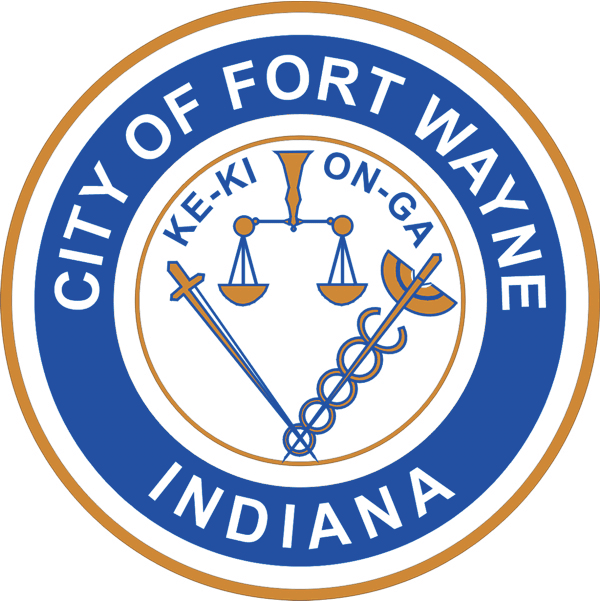
News release from the City of Fort Wayne:
Community Cats Program Launch
(July 9, 2014) – In a morning news conference the Directors for three agencies, the ACSPCA, HOPE for Animals and Fort Wayne Animal Care & Control, announced their partnership to launch a Community Cats Program in Fort Wayne. With the passage of the new Animal Care & Control ordinance signed into law by Mayor Tom Henry, the new Community Cats Program will go into effect August 18, 2014.
The Coalition announcement includes an offer to Fort Wayne residents, who own one or more altered cats, to purchase a $10 microchip to aid in identifying owned cats from free-roaming cats without owners. Take your cat in a pet carrier to any of the three agencies during normal business hours from now until August 18 with proof of your cat spay or neuter surgery to purchase the microchip.
For additional information call the HOPE Community Cat Hotline at 260-440-8893 or visit the Animal Care & Control website www.fwacc.org.
Q. What Is a Community Cat?
A. Any outdoor free roaming cat that has been evaluated and sterilized by a licensed veterinarian, ear tipped, vaccinated for rabies, microchipped, documented with Animal Care & Control and released back into the area from which it was captured.
Q. How Can I Be Sure My Cat Isn’t Mistaken for a Community Cat?
A. The best protection is to keep your cats inside and use proper identification in the form of a city pet registration tag and a pet microchip. Make sure you keep your pet’s identification current to the address where you currently reside. Should you move, contact our department to update your information. Should you give your pet away, transfer the microchip and registration information to the new owner of the animal. A cat that is found with proper identification will be held at the shelter for the normal hold period while we trace the identification and make every effort to notify the owner that the lost pet has been found.
Q. What is a Community Cat Provider?
A. A person who provides food, water, shelter or otherwise cares for Community Cats and complies with Administrative Rules for Community Cat Providers. A person so identified shall not be considered the Owner or Harborer of a Community Cat.
Q. What is Ear Tipping?
A. The straight-line cutting of the tip of the left ear of a cat while it is anesthetized in order to identify the cat as a Community Cat.
Q. What is a Free Roaming Cat?
A. Any cat not restrained and without acceptable identification
Q. What are the Provisions of the Community Cat Program?
A. Free roaming cats without acceptable identification which have been impounded or trapped in the community may be deemed a potential Community Cat by the Department of Animal Care & Control based on age, health, and behavior. Such cats may be transferred to HOPE for Animals for services and for reintegration back into the community or placement in a barn cat program administrated by the Allen County SPCA. A cat identified as an existing Community Cat may be immediately returned to the community and exempted from the legal hold period.
Q. What if a Community Cat is a Nuisance in My Neighborhood?
A. Animal Care & Control may impound Community Cats which are public nuisances, diseased, or not thriving due to loss of resources. The Department shall coordinate with partnering Animal Welfare Organizations and/or veterinarians to offer resource information for establishing opportunities for Community Cats, Community Cat Providers, humane deterrents, and advice regarding Community Cat nuisances.
Q. What is Required of a Community Cat Provider?
A. There isn’t an application process, but you must comply with Administrative Rules for Community Cat Providers to prevent nuisance problems that could be reported for enforcement action.
- Confine free roaming cats and arrange for surgical sterilization, ear tipping, and vaccination for rabies by a licensed veterinarian, microchipping and documentation of the foregoing with the Animal Care & Control prior to release back to the community;
- Seek veterinary care at your own expense for a Community Cat which appears to require medical attention for serious illness or injury; Coordinate with an Animal Welfare Organization or the Department to arrange for impound of the sick or injured cat for euthanasia.
- Make reasonable effort to work with Fort Wayne Animal Care & Control or designated Animal Welfare Organization to resolve nuisance complaints using humane deterrents and/or removal of Community Cats identified as a public nuisance; and
- Community Cat Providers found to be in violation or managing an excess number of Community Cats as determined by Animal Care & Control may have their Community Cat Provider designation revoked at the discretion of the Department.
It shall be unlawful to provide food, water, or shelter to free roaming cats in excess of thirty (30) days unless the provider presents acceptable documentation showing implementation of the requirements of a Community Cat Provider.













